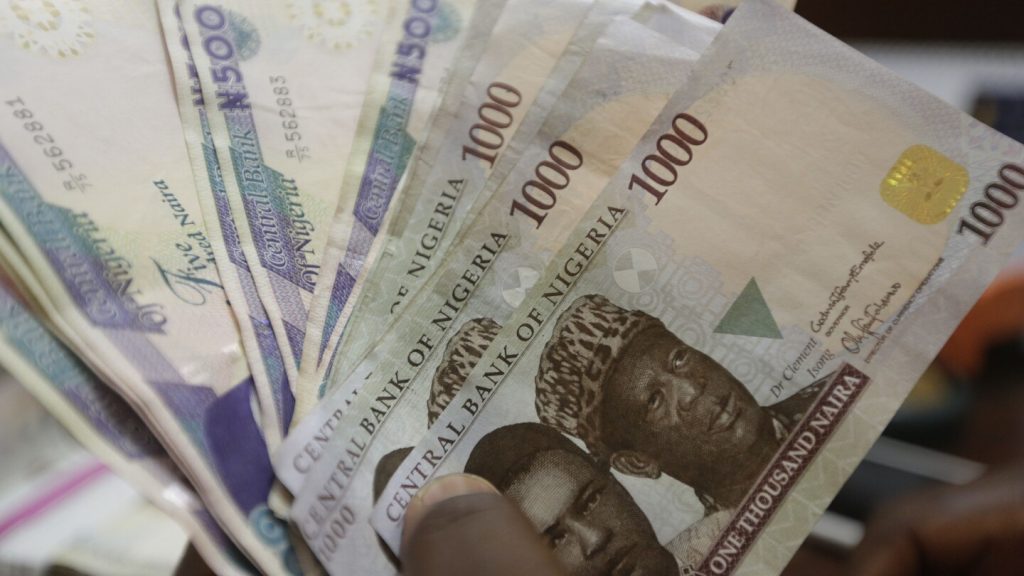Bobrisky, a popular Nigerian transgender woman, was sentenced to six months in prison for throwing money into the air, a practice known as spraying, which is illegal in Nigeria. The rare conviction sparked criticism in the deeply conservative country, where LGBTQ+ individuals are often targeted under laws banning same-sex relations. Bobrisky, whose real name is Okuneye Idris Olanrewaju, pleaded guilty to the offense of tampering with naira banknotes by spraying them at a social event in Lagos. The maximum sentence without the option of a fine was imposed, and she is allowed to appeal the ruling.
In court, Bobrisky expressed ignorance of the law, stating that she is a social media influencer with millions of followers and wished for a second chance to educate them against the abuse of the currency. Spraying naira banknotes is considered an abuse of the currency as the money is eventually trampled on the ground, which is seen as an insult in Nigeria where a dollar is worth about 1,197 naira. The presiding Judge, Abimbola Awogboro, emphasized that the sentence serves as a deterrent to others from mutilating and tampering with the country’s currency.
Human rights lawyer Festus Ogun raised concerns about the selective enforcement of the law in Nigeria, questioning why Bobrisky was singled out by the anti-graft agency. The conviction has brought attention to the discrimination faced by members of the LGBTQ+ community in the country, highlighting the challenges they encounter due to the conservative social climate and laws that criminalize their existence. Bobrisky’s case has reignited debates on the rights and freedoms of individuals, especially those marginalized due to their sexual orientation or gender identity.
The sentencing of Bobrisky for the offense of spraying money into the air has sparked debate and criticism both within Nigeria and internationally. Some view the conviction as an overreach of the law and an infringement on personal freedoms, while others see it as a necessary measure to uphold the integrity of the country’s currency. The case has underscored the significance of upholding the rule of law while also considering the broader implications for marginalized communities and the need for a more inclusive and tolerant society in Nigeria.
As Bobrisky considers appealing the ruling, the case has become a focal point for discussions on LGBTQ+ rights, freedom of expression, and the enforcement of laws in Nigeria. The role of social media influencers in educating the public on legal matters and responsible behavior has also been highlighted in the context of this case. Moving forward, the outcome of Bobrisky’s appeal and the public reaction to her sentence will shed light on the current state of human rights and social justice in Nigeria and the challenges faced by marginalized groups in the country.


